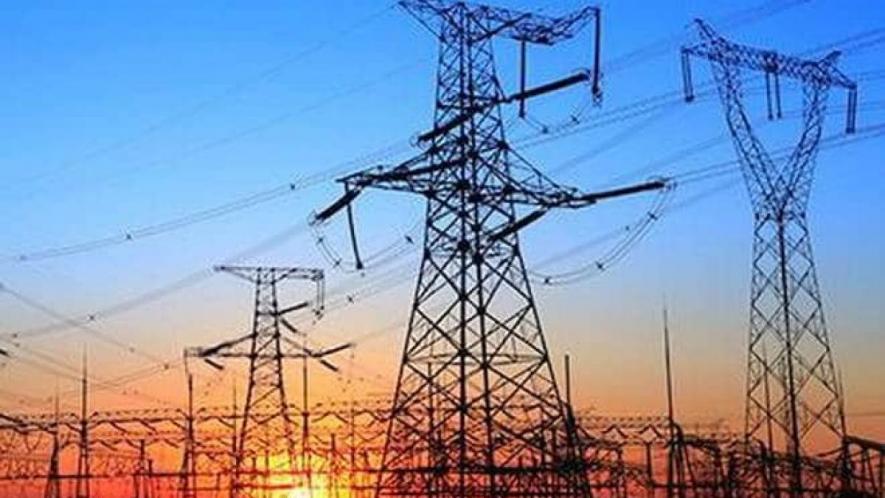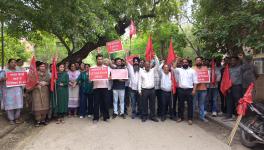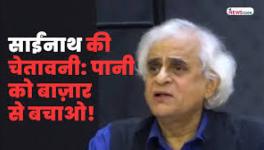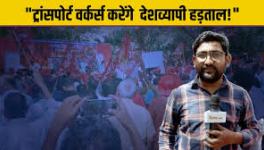Electricity Employees Across India Hold One-Day Strike, Demand Affordable Electricity

Representational Image. Image Courtesy: The Hindu
Kolkata, February 3: Over 27 lakh electricity workers and engineers are on a one-day token strike on February 3 against The Electricity (Amendment) Bill, 2020, and the Standard Bidding Document (SBD).
Spread across over 100 power utilities and distribution setups throughout the country, these 27 lakh power sector workers and engineers will not attend to any breakdown today, Prasanta Nandi Chowdhury, National Convenor of the National Co-ordination Committee of Electricity Employees and Engineers (NCCOEEE) told NewsClick.
In a statement released on Wednesday, the body said electricity workers “urged the Government to drop their anti-people as well pro-capitalist policy of throwing fiscal burden upon people and transfer profit to their cronies. Budget placed by Finance Minister has reaffirmed the same policy of allocation fund for power sector, while the Government is going ahead with its policy of privatisation.”
The body said all of the electricity employees in Kerala and Chandigarh participated in the strike with the majority also on strike in Tamil Nadu, Haryana, West Bengal, Maharashtra, Jharkhand, Bihar and Assam.
All the major trade union except the RSS-backed BMS has supported the call against the Bill and the SBD and the decision by electricity workers to go on strike.
The NCCOEEE noted that the changes will result in lucrative urban electricity boards which will be milked while rural consumers will be left out the purview of electricity distribution. The body met with the press at the Kolkata Press Club recently and demanded the immediate withdrawal of the Bill.
“Even one of the major demands of the protesters in New Delhi has been to withdraw the Electricity (Amendment) Bill, 2020. It is due to the farmers agitation that the detrimental effects of the Bill has come to the forefront and for that we are indebted to our farmers,” Chowdhury had told the press.
The amendment seeks to take away the right to electricity from the poorest sections of people in the country and the Centre has not heeded to the warning by workers and engineers from the electricity sector, the NCCOEEE said.
The organisation has noted that “rampant privatisation” is being targetted through this Bill by introducing the SBD and private corporate interests seeking high profit through Government “patronisation” by “taking over the electricity sector” in the country.
The Electricity Act, 2003, virtually mandated the tri-furcation of the State Electricity Boards (SEBs) into companies for the generation, transmission and distribution of power. It was pushed by the then NDA government with the complete support of the Congress. Only the Left parties opposed it in Parliament in 2003. Only Kerala still retains its stand of not tri-furcating the SEB.
The fear is that the Bill, passed during the lockdown period, aims at dis-investing these companies and handing them over to the private sector. It could result in companies hyping up installation costs to raise the consumer price in this sector and demand large amounts as revenue from the consumers. The 2003 Act resulted in a steep rise in the cost of electricity.
As of now more than half of the electricity sector is privately owned and the huge debt accumulated by the private electricity majors has not led to an augumented demand of electricity in the country. With their profits dropping the consumer has had to pay more. However if the same happens in the government sector then an increase in the consumer rate is less likely. Hence the unions feel government machinery is used for privatisation at rampant scale with the poorest being affected.
Here is the statement by the NCCOEEE in full:
EEFI convey warm greetings and red salute to the electricity employees of the country for participation in one day token Strike called by the National Co-ordination Committee of Electricity Employees & Engineers (NCCOEEE) in solidarity to struggling peasants at Delhi and all over the country as well opposing privatization policy of Government of India towards curbing right to electricity to the poor people of the country. Demands placed are as under:
· Scrap Electricity (Amendment) Bill, 2020 & Standard Bidding Document towards total privatisation of distribution of electricity.
· Withdraw process of privatisation of Electricity from public sector to private company in states and UTs. Cancel all existing private Licenses and franchises in power sector.
· Reintegrate all power utilities in states and UTs with function components of Generation, Transmission and Distribution like KSEB Ltd & HPSEB Ltd.
· Reintroduce Old Pension Scheme & Scrap New Pension Scheme. Forced retirement is not acceptable in power sector.
Ensure equal wage for equal work, pending regularization of all contract and casual workers / employees. Fixed Term employment is not acceptable in power sector.
· Fill in all existing vacancies with policy of regular jobs to be discharged by regular employees only.
Electricity Employees & Engineers through this token strike urged the Government to drop their anti-people as well pro-capitalist policy of throwing fiscal burden upon people and transfer profit to their cronies. Budget placed by Finance Minister has reaffirmed the same policy of allocation fund for power sector, while the Government is going ahead with its policy of privatization.
Participation in today’s strike by the Trade Union members varied from 100% to 25%. While Kerala & Chandigarh participation was 100%, Tamil Nadu, Haryana 80% West Bengal 70%, Maharashtra, Jharkhand, Bihar and Assam 60%-50%. Power sector Engineers took part in Work boycott and demonstration in huge number. In some states, day long protest demonstration continues. EEFI calls upon electricity employees and consumers to form united broad based platform to carry forward the struggle.
Get the latest reports & analysis with people's perspective on Protests, movements & deep analytical videos, discussions of the current affairs in your Telegram app. Subscribe to NewsClick's Telegram channel & get Real-Time updates on stories, as they get published on our website.
























